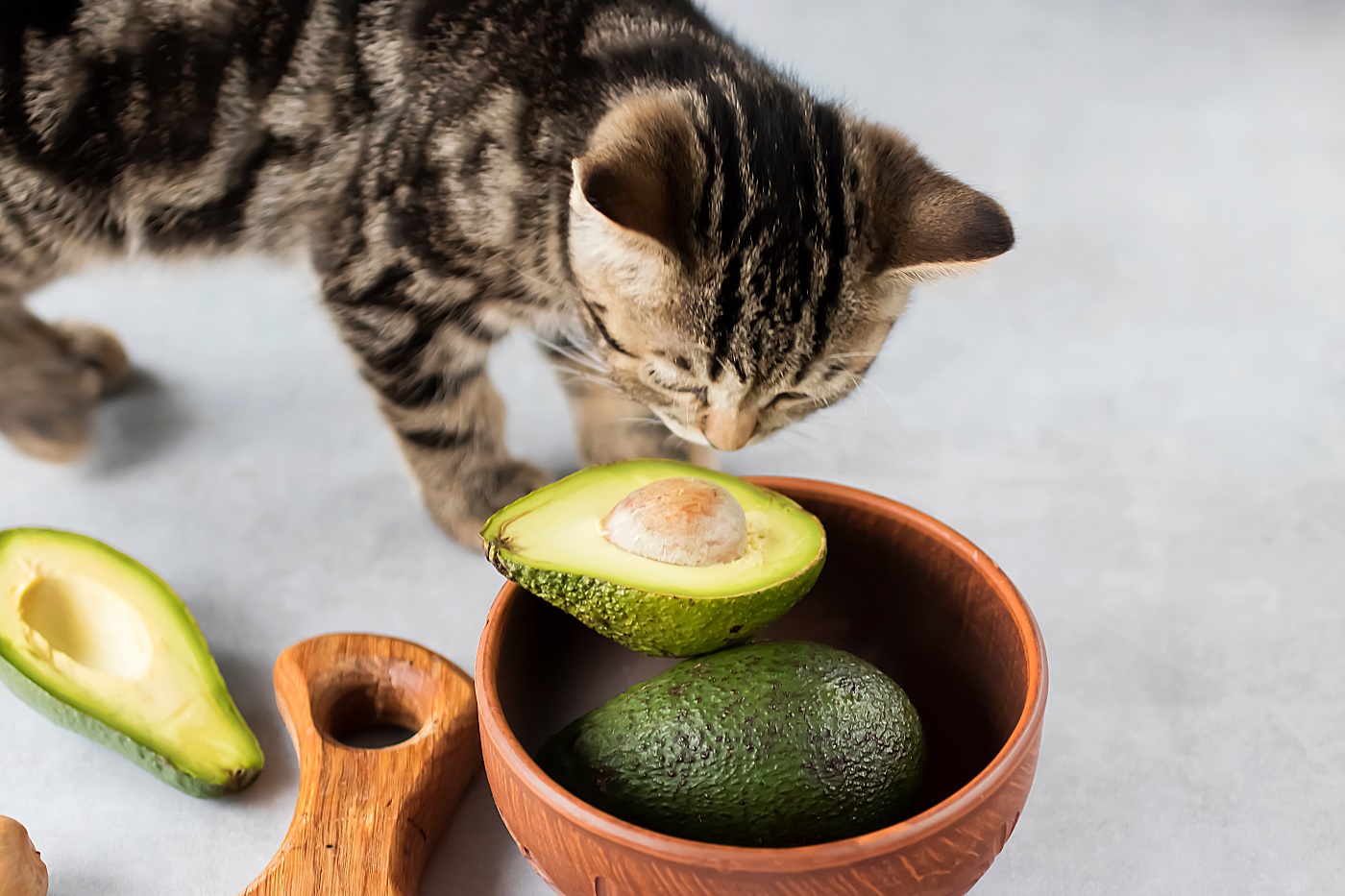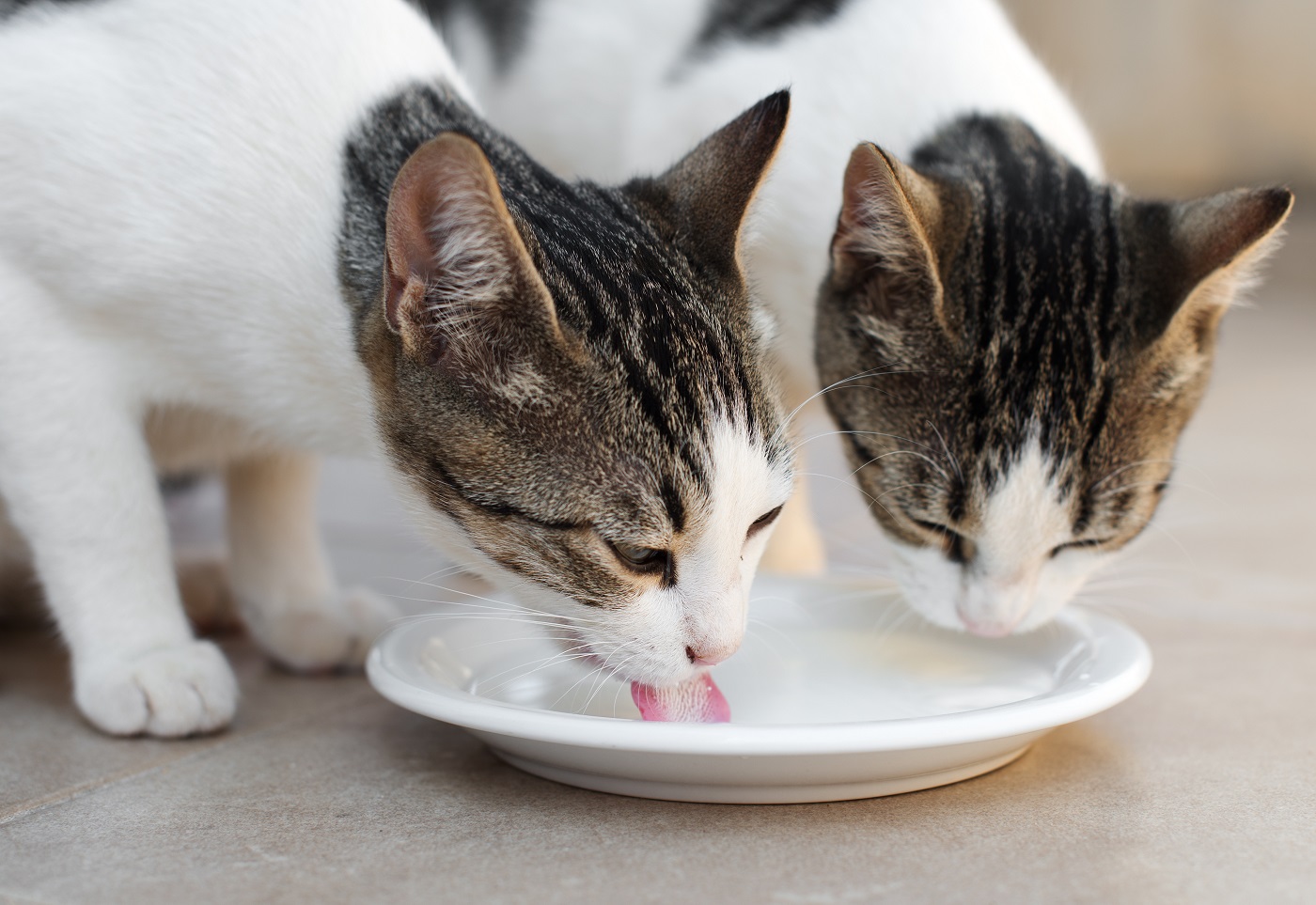The zoologist and animal behavioural scientist Paul Leyhausen already found that cats do not necessarily only eat what is actually good for them. This makes it all the more important that the human roommate of the mini kitty is well informed about which of his foods can be harmful to cats. Some human foods that are beneficial to human health are highly toxic to cats.
The following list is not exhaustive.
What are cats not allowed to eat?
Dangerous foods for cats include:
- Alcohol: It is actually obvious that cats should not be given alcohol. For this reason, Bach flowers for cats only available in a non-alcoholic version. Alcohol can lead to severe liver and brain damage in cats. Even an amount that seems very small from a human point of view, namely a tablespoon, is enough to put a cat into a coma. Just a little more alcohol can even be fatal for the cat.
- Rollmop: Even if you might think that you are doing something particularly good for your cat by letting it participate in your rollmops, it is strongly discouraged. The high salt content is not good for the cat's digestive tract at all.
- Chocolate: Just like for dogs, chocolate is also highly toxic to cats due to the ingredient theobromine. The substance is contained in every type of chocolate – but in particularly high concentrations in dark chocolate and pure cocoa, as it is used for baking or the production of "hot chocolate", among other things. When cats consume chocolate, it has fatal consequences. It leads to cardiac arrhythmias, muscle tremors and seizures. The higher the cocoa content of the chocolate, the more dangerous the chocolate is for our roommate cats. Fortunately, cats - unlike dogs - are often not so interested in the delicate temptation, but you should still make sure that your house cat does not have access to your chocolate because of the risk of poisoning.
- Raw pork: There is a risk of infection with the Aujezky virus – which is often fatal. Aujeszky's disease or pseudo-rage manifests itself primarily through neurological symptoms of the cat. She becomes restless and restless, makes herself known by frequent meowing and loses a lot of saliva due to conspicuous swallowing movements. In the advanced phase, coordination disorders and paralysis occur.
For emergencies: Read more about the Signs of poisoning and first aid measures.
 © zhannaz / stock.adobe.com
© zhannaz / stock.adobe.com- Avocados: Avocados are also dangerous foods for cats. Currently very hyped in human nutrition due to its health-promoting properties, avocados are harmful to cats. The persin contained in it leads to shortness of breath, oedema in cats and it damages the heart muscle.
- Tomatoes and aubergines: The vegetables contain atropine, which triggers cardiac arrhythmias in cats.
- Raw poultry meat: Even if cats love poultry meat, they should still not eat it under any circumstances. This is because consumption poses numerous dangers for our feline furry creatures - among other things, because it could contain salmonella.
- Bone: These can contain splinters and thus injure the cat's palate, get stuck in the throat or damage the intestinal wall of the house cat.
- Legumes and cabbage: Foods that are harmful to cats are also legumes and cabbage. They have the characteristic of being difficult to digest. For the cat, they can be downright indigestible and lead to flatulence or diarrhoea. In addition, isolated deaths are known.
- Onions: Onions are very toxic to cats in any form – whether raw, cooked, dried or powdered. The reason for this is the sulfur compounds. These attack the cats' red blood cells. The consumption of onions in any form can therefore cause vomiting, diarrhea, mucous membrane irritation or even irritation in our beloved feline furry creatures. Anaemia (anemia). Even small amounts can be enough to change the cat's blood for the worse and endanger its health.
- Leek: Leeks are also dangerous foods for cats. These include wild garlic and chives. However, chives in particular are often found in the garden, on the balcony and in the kitchen. If the cat eats it, it is threatened with symptoms of poisoning.
- Milk: Because cats do not tolerate lactose by nature, they should no milk , even if it is often argued that cats on farms also drink milk regularly, (supposedly) without being harmed by it.
Discover our selection of special Cat milk with less lactose in the zooplus shop.
 © M-Production / stock.adobe.com
© M-Production / stock.adobe.comNot a food for cats, but still dangerous: slug pellets
Slug pellets are not schnapps for the snail, but a vermin killer, which is pressed into a grain shape and is used against slug infestation in the garden and house area. It is also known as molluscicide. Slug pellets can contain the stomach poison metaldehyde. So make sure that the cat food never comes into contact with slug pellets.
If your feline furry friend has symptoms such as Vomit, balance problems or very heavy salivation, you should immediately See a veterinarian. The doctor can then initiate a suitable treatment as quickly as possible to save the cat.
By the way, for children and mammals, the consumption of the chemical club can have a fatal effect! Garden owners with children or pets should therefore not use slug pellets under any circumstances! This also applies if the neighbors have cats that could come into contact with the slug pellet. Find out about environmentally and animal-friendly alternatives! Children, cats and the environment will thank you.
Comments
Post a Comment